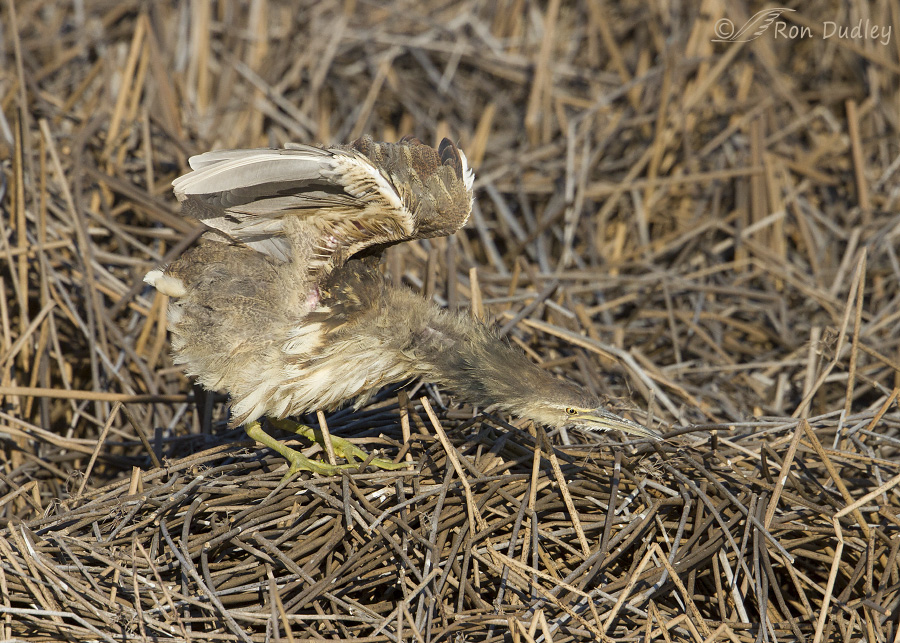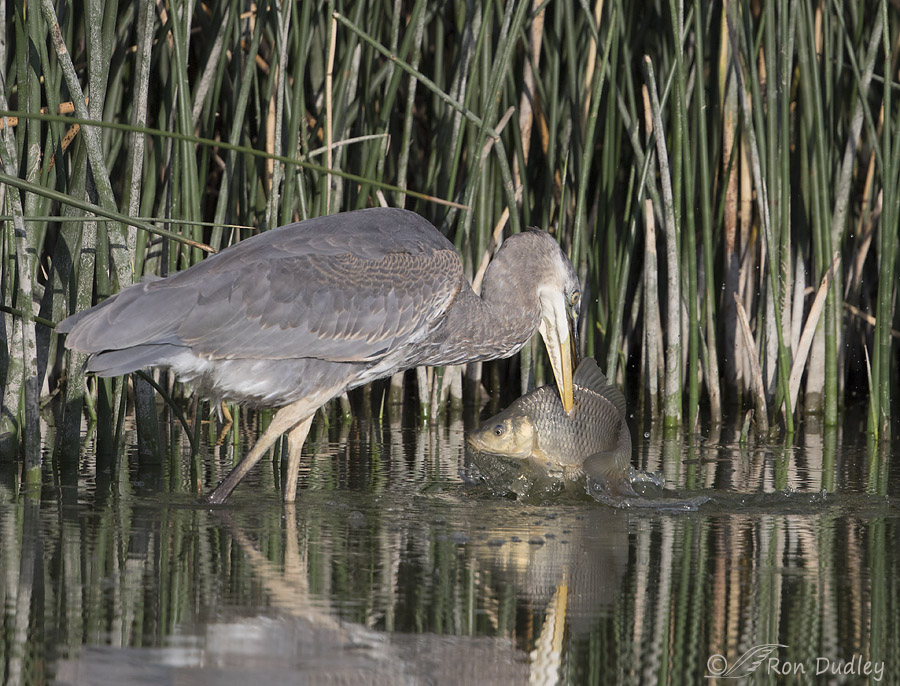Tag: adaptive behavior
Great Blue Heron Repeatedly “Baptizing” A Large Fish
An Amazingly Resilient One-legged Ibis
Last week I came across this one-legged White-faced Ibis at Farmingtom Bay. Normally, these birds feed by slowly wading through the water and locating their invertebrate prey by tactile probing of the muddy substrate. Their long, recurved and extremely sensitive bill is an ideal tool for this purpose. But this bird, of course, is unable to wade. So it would stand in one spot for a few seconds while feeding and then jump to the next spot with great effort. The problem it had with this method was maintaining balance as it was landing in the new spot, since it couldn’t put down the missing leg for support. So, as it landed it would use that long bill as a sort of substitute for the missing leg and foot, thus gaining an additional balancing and support point in the mud. Here it has just regained balance and is closing its wings and pulling its long bill off of the mud. Perhaps what the bird was doing can be better visualised from this one photo, where you can tell from the turbulence around the right leg that the ibis has just landed in this spot a split second before and that it is using its long bill to brace itself in order to regain balance. And here I caught the ibis just as it was “landing” on a new feeding spot – the water is actually fairly deep here. I hope this post isn’t seen as much…



